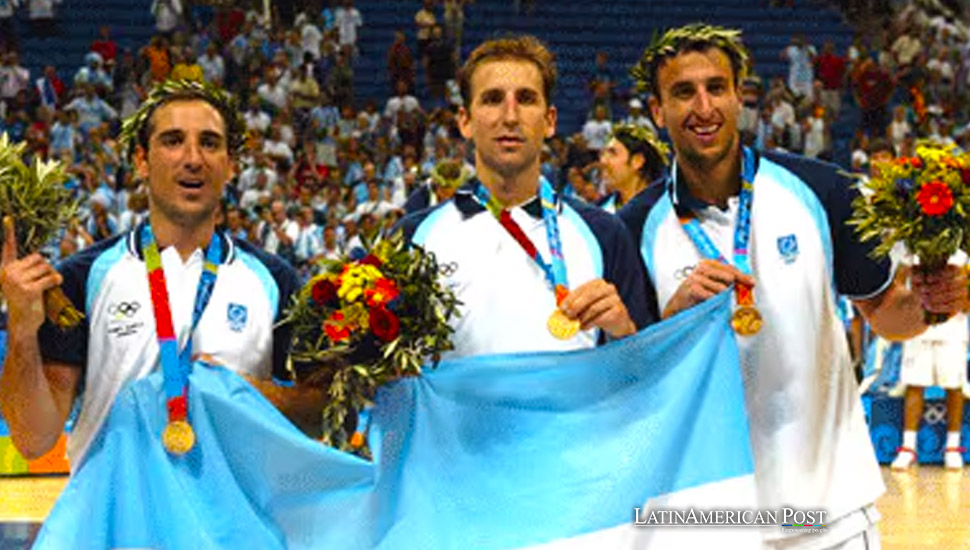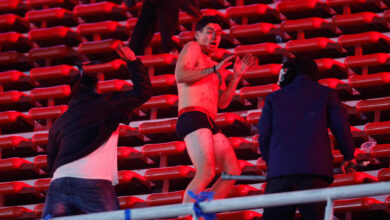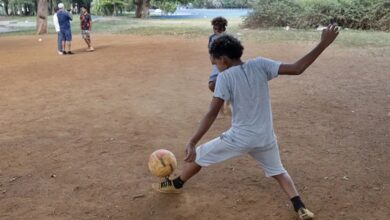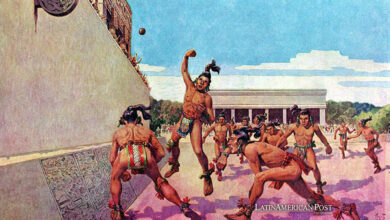Argentina’s Glorious Day of Double Soccer and Basketball Olympic Gold in Athens 2004

Twenty years ago, Argentina achieved a historic feat at the Athens 2004 Olympics, winning two gold medals in a single day. This monumental achievement ended a 52-year gold drought and ignited a new era of Argentine sporting success.
Argentina’s Long Wait for Olympic Glory
As Argentina prepared for the Athens 2004 Olympics, the nation was eager to end a long-standing drought in the world’s most prestigious sporting event. For 52 years, Argentine athletes had competed in the Olympics without securing a single gold medal. The last time the country stood atop the podium was in 1952, and the pressure to reclaim that glory weighed heavily on the blue and white athletes.
The stakes were high, and expectations were even higher as Argentina sent its teams to compete in Athens, the birthplace of the Olympic Games. Little did the world know that August 28, 2004, would become one of the most celebrated days in Argentina’s sporting history—a day when the country broke its gold medal curse and won two gold medals in just 12 hours.
Soccer: The Quest for Elusive Gold
Soccer, Argentina’s beloved national sport, has always held a special place in the country’s heart. By 2004, Argentina had already established itself as a soccer powerhouse, boasting two FIFA World Cup titles. However, despite their success on the world stage, Olympic gold had eluded them, with the national team finishing as runners-up twice in previous Games.
The 2004 Olympics presented a golden opportunity for Argentina to claim the top spot in men’s soccer finally. The team was led by the legendary Marcelo Bielsa, a respected figure in Argentine soccer who had been at the helm of the senior national team for six years before taking charge of the Olympic squad. Bielsa’s squad was a mix of experienced players and rising stars, featuring the likes of Gabriel Heinze, Roberto Ayala, Carlos Tevez, and a young Javier Mascherano.
From the onset, Argentina’s Olympic soccer campaign was dominant. The team breezed through the group stages and knockout rounds, scoring goals quickly and demonstrating their superiority on the field. As the tournament progressed, it became clear that this was Argentina’s best shot at securing the elusive gold.
In the final, Argentina faced Paraguay, and the anticipation was palpable. The match, unusually scheduled for a 10 a.m. local time kickoff, saw Argentina control the game from the start. Carlos Tevez, who had been in scintillating form throughout the tournament, scored the match’s only goal with a near-post flick in the early minutes. It was his eighth goal of the game, earning him the top scorer title and securing Argentina’s first-ever Olympic soccer gold.
Basketball: A Golden Generation’s Triumph
Just as Argentina’s soccer players were celebrating their historic victory, another group of Argentine athletes was preparing for a moment of destiny. The men’s basketball team, known as the “Golden Generation,” had already made headlines with their remarkable performances leading up to the gold medal match.
Led by Manu Ginobili, the team’s opening game against Serbia and Montenegro set the tone for the tournament. Ginobili’s last-second buzzer-beater gave Argentina a dramatic 83-82 victory, signaling that this team could do something special. The team continued to impress, defeating the host nation Greece in the quarter-finals and achieving the unthinkable: a stunning semi-final victory over the United States.
The U.S. team, the dominant force in international basketball for decades, was expected to win the gold. However, Argentina’s well-coordinated offense and solid defense proved too much for the Americans, leading to an 89-81 upset. This victory was not just a win but a turning point in basketball history, marking the beginning of the end of U.S. dominance in the sport.
With the semi-final win still fresh in their minds, Argentina’s basketball team had little time to celebrate before facing Italy in the gold medal match. The game was intense, with both teams fighting for every point. Luis Scola emerged as the match’s hero, scoring 25 points and leading Argentina to a 12-1 run in the fourth quarter. Alejandro Montecchia’s two clutch three-pointers sealed the victory, and Argentina’s basketball team claimed the country’s second gold medal.
The Impact of Argentina’s Golden Day
August 28, 2004, will be remembered as one of the most incredible days in Argentine sports history. The two gold medals ended Argentina’s 52-year wait for Olympic glory and signaled a new era of success for the country’s athletes. The victories in soccer and basketball inspired a generation of young Argentines to pursue their athletic dreams, knowing that anything was possible.
The impact of that golden day in Athens extended beyond the immediate joy of victory. It sparked a resurgence in Argentine sports, with the country winning seven more Olympic gold medals in the following years—more than they had achieved in the previous 15 Olympic Games combined. This newfound success on the world stage helped elevate Argentina’s reputation as a sporting nation and brought a sense of pride and unity.
The achievements of Argentina’s Golden Generation in basketball have left a lasting legacy. The team’s success in Athens was not a one-time event but the beginning of a golden era for Argentine basketball. Manu Ginobili, Luis Scola, and their teammates led Argentina to further success in international competitions, including a bronze medal at the 2008 Beijing Olympics.
Their victory over the United States in the 2004 Olympics’ semi-finals profoundly impacted the sport globally. It exposed the vulnerabilities of the U.S. basketball program and led to significant changes in how the United States approached international competition. The so-called “Redeem Team” that won gold in Beijing four years later directly responded to the lessons learned from the loss to Argentina.
Marcelo Bielsa’s Lasting Influence
Marcelo Bielsa’s role in leading Argentina to their first Olympic soccer gold also had a lasting influence on the sport in the country. Bielsa became a national hero, known for his tactical genius and passionate approach to the game. His success with the Olympic team solidified his reputation as one of the greatest soccer minds in Argentina’s history.
Bielsa’s influence extended beyond the 2004 Olympics. Many of the players he coached during that tournament went on to have illustrious careers, and coaches and teams worldwide have adopted his tactical philosophies. Bielsa’s legacy is evident in how Argentina continues to play the game—with a focus on attacking football, high-intensity pressing, and an unwavering commitment to excellence.
Twenty Years Later: A Legacy of Excellence
As Argentina reflects on the 20th anniversary of that glorious day in Athens, the memories of those historic victories continue to inspire. The achievements of the soccer and basketball teams in 2004 are not just a testament to the talent and determination of the athletes; they are a reminder of what is possible when a nation comes together in pursuit of a common goal.
The legacy of August 28, 2004, lives on in the hearts of Argentines and serves as a source of pride for the country. It is a day that will forever be etched in the annals of Argentina’s sporting history—a day when the government not only broke a 52-year gold medal drought but did so in a way that captured the world’s imagination.
Also read: The Short List of Teams Argentina’s Messi Faced Without Scoring or Assisting
As Argentina continues to build on its past successes, the lessons learned from that golden day in Athens will continue to guide the nation’s athletes as they strive for excellence on the global stage—the spirit of 2004 lives on, inspiring future generations to dream big and aim for gold.





